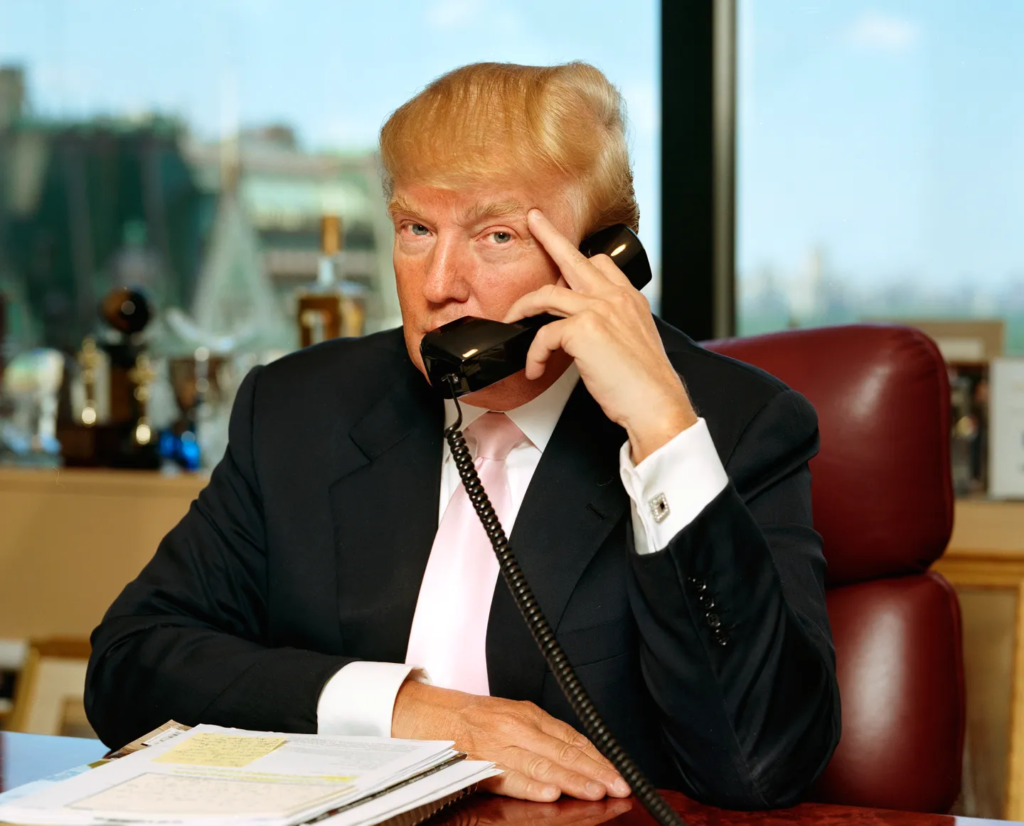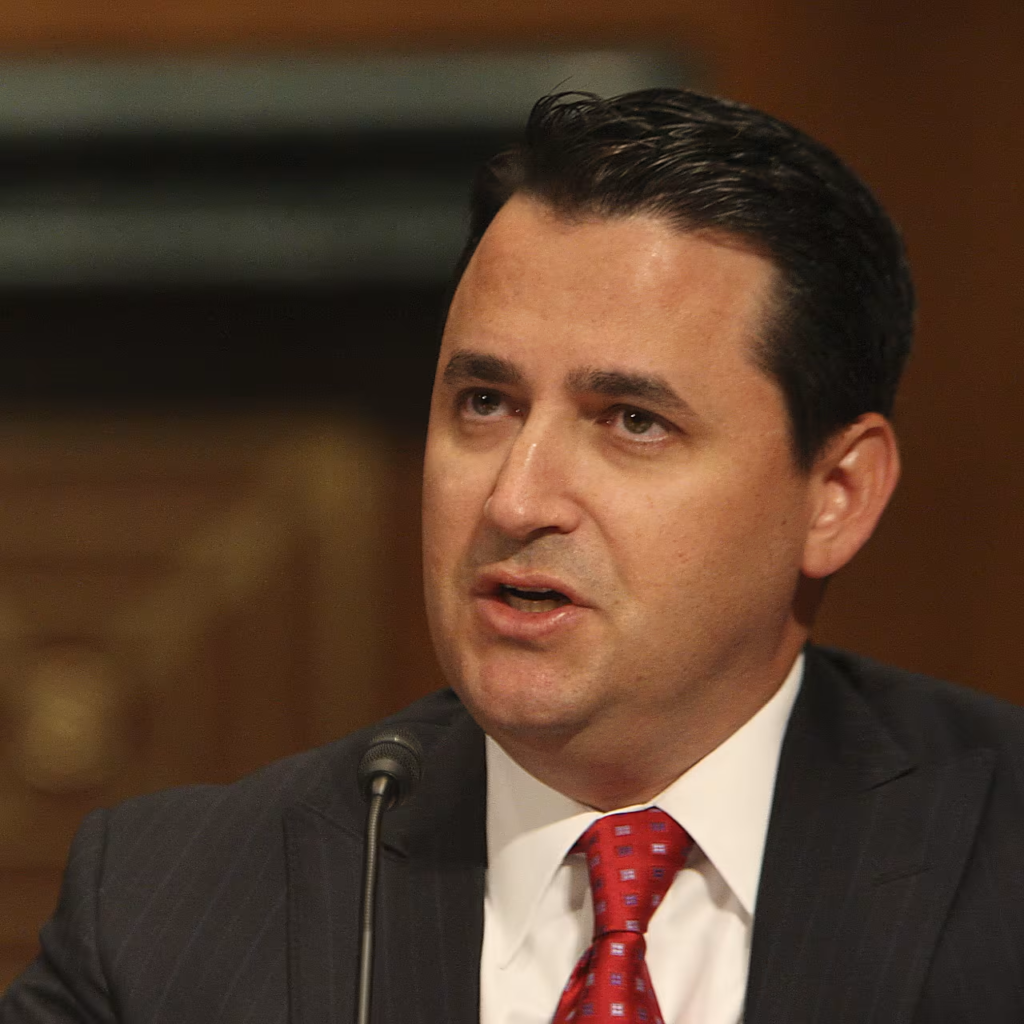Key figures involved with Project 2025 assert that the initiative remains nonpartisan, staying true to its origins as a good-government project from the 1980s, despite facing significant public outcry. They emphasize that the project continues to focus on its foundational goals of promoting effective governance, regardless of the political tensions surrounding it.

The Heritage Foundation’s Project 2025 and its latest Mandate for Leadership series have come under fire from critics, particularly among Democrats and opponents of former President Donald Trump, who have cast the project as a right-wing agenda. However, the founders and current leaders of the initiative maintain that its mission remains consistent with its original good-governance principles established in the 1980s.
Despite the controversy, the Heritage Foundation has consistently published its Mandate for Leadership series nearly every election cycle since the Reagan administration. Former Attorney General Edwin Meese III, a key figure in the conservative movement and a leader in the project, insists that there is nothing radical about the endeavor. Meese explained that while the mechanics of the project have evolved since 1981—from focusing on organizational norms to addressing individual policy issues—the core mission remains unchanged.
Former President Trump has distanced himself from the current iteration of the project, expressing disagreement with some of its positions and denying any involvement in its formation. Nonetheless, Project 2025’s leaders argue that the initiative continues to stand on its merits, regardless of the political criticisms it faces.

After then-President-elect Ronald Reagan appointed Edwin Meese as director of his transition team, Meese recalled attending a dinner with members of the Heritage Foundation and other conservatives, where he was presented with early drafts of the 1981 Mandate for Leadership. This foundational document would go on to shape the Reagan administration’s policies.
Charles Heatherly, who was involved in the original project during the 1980 election cycle, recounted on Thursday that both the Reagan and Carter campaigns were approached to discuss the initiative, countering current claims that the project has always been a one-sided, partisan effort. “Both the Reagan campaign and the Carter campaign were invited to send a representative to that dinner. The Carter campaign never responded,” Heatherly noted.
Meese highlighted the significance of the 1981 project, describing it as “particularly helpful” during the Reagan years because such an initiative had not been undertaken in a long time. He recalled that a similar coalition had existed during the Johnson administration, but by 1980, it was clear that a new, comprehensive guide was needed.
The effort by the Heritage Foundation was notable for its depth and expertise, as Meese explained: “They recruited authors who knew the [policy] topics because they had actually worked in those departments or in other [areas], which gave them the opportunity for knowledge about how the rest of the government worked.” Each department or agency had its own chapter in the book, which totaled around 500 pages, leaving a strong impression on Meese.
So impressed was Reagan with the project that he ensured every member of his incoming cabinet had a copy of the Mandate for Leadership before his inauguration. Meese recounted, “Reagan was so impressed that he had a meeting of his cabinet before the inauguration. And he put a copy of the book at every person’s desk,” underscoring the pivotal role the document played in shaping the early days of the Reagan administration

Charles “Chuck” Heatherly (Thetaylorboyer, CC BY-SA 4.0, via Wikimedia Commons)
The pivotal meeting where Reagan’s cabinet members received their copies of the Mandate for Leadership was held in the State Department’s conference center. Each secretary was instructed to “find your chapter,” according to Edwin Meese. This directive marked the beginning of the project’s influence on the efficiency and policymaking processes within the Reagan administration, demonstrating the impact that conservative expertise had on shaping the new White House’s agenda.
One notable excerpt from the Mandate for Leadership, reported by UPI, recommended that the 1981 administration avoid affirmative action, advocating instead for a civil rights policy based on merit. The document argued that “every person has an inherent right to obtain whatever economic or other rewards he or she has earned, by virtue of merit, and that it is inherently wrong to penalize those who have earned their reward by giving preferential treatment and benefits to those who have not.”
Regarding how the Reagan administration utilized the project’s recommendations, Charles Heatherly acknowledged that the implementation varied among different agencies, with some taking the guidance more seriously than others. Heatherly, who recently defended the project in a Wall Street Journal column, explained that he had recruited 20 teams of experts from previous White Houses, academic institutions, and the then-fledgling Heritage Foundation to contribute to the project. The 1980 cycle’s book ultimately gained significant attention, making the Washington Post’s bestseller list for three weeks.
Steve Groves, who served as an assistant special counsel during the Trump administration and co-editor of the current Mandate for Leadership—part of Project 2025—pushed back against claims that the project or its book were specifically tailored for Trump. Groves emphasized that the project’s scope and purpose remain broader than any single administration, reflecting its longstanding commitment to conservative governance principles rather than aligning with any particular political figure.

Steve Groves (The Heritage Foundation)
“It’s just a lot of careless journalism,” Groves remarked. “Most reporters don’t dig deep enough to get their facts straight.”
Groves noted that after Biden’s political collapse during the June debate, media coverage of Project 2025 “skyrocketed.”
He suggested this surge was a sign that the media-liberal-political alliance needed a fresh narrative, which involved painting the Mandate for Leadership as an “extreme document.” Groves emphasized that many of the claims, such as calls for the next president to ban abortion and end birthright citizenship, were completely untrue.
“They were just looking to divert attention,” he said.
“The notion that it’s Trump’s project is false,” Groves continued, pointing out that the anthology was released in 2023 and was developed in 2022 when the presidential race was still wide open.
Groves and Heritage Foundation President Kevin Roberts shared similar views, with Groves highlighting that many sections of this year’s work do not push a single ideological agenda.
On the topic of trade policy, for instance, conservatives have differing opinions that fit within the broad spectrum of the right.
As Groves explained, Trump supporter Peter Navarro, a “fair trade” advocate, and Kent Lassman, the CEO of the pro-“free-trade” Competitive Enterprise Institute, co-wrote that chapter.
Groves stated that while Lassman’s views align more closely with Heritage’s traditional stance, Navarro’s involvement further disproves the notion that Project 2025 is merely a pro-Trump, far-right propaganda tool.
Roberts also pointed out that these kinds of examples distinguish Heritage and Project 2025 from genuinely partisan policy-making efforts.
For the 2024 cycle, he mentioned, Heritage made Project 2025 materials available to all candidates or potential candidates during 2022-2023, including Biden, Trump, former South Carolina Governor Nikki Haley, and Robert F. Kennedy, Jr.
“President Biden did not respond, but if he had, I would have gladly gone to the White House, not sarcastically, but sincerely, to offer him a briefing,” Roberts stated.
“As for the origins of the mandate, we’ve always made it available to any presidential candidate interested in a briefing. We even offer congressional briefings to Democrats. Although in Washington, fewer have taken us up on it over the years. But perhaps that could change someday.”
Roberts also addressed the misconception that Heritage has produced the same type of “project” in every election cycle. He explained that this is incorrect for two reasons.
First, in elections like 2004, there was no need to completely rewrite the conservative guidebook for either George W. Bush or then-Senator John Kerry, D-Mass., because a Bush re-election would have meant policy continuity.
Spencer Chretien, a Project 2025 associate director, pointed out that conservatism has evolved since the 1980 election. For example, conservatives once opposed the 1975 “Church Committee”—a congressional panel led by Senator Frank Church, D-Idaho, which examined the inner workings and “abuses” of the intelligence community.
Today, however, many conservatives might welcome such a committee, as they have become wary of the left’s support for the “government’s vast power.” Many no longer view the Church Committee as a “fringe leftist attack” on courageous public servants, but rather as a necessary check on the actions of unelected bureaucrats.
Roberts argued that in some respects, Project 2025 is more like the original 1980-81 version, as it represents a collection of sometimes-conflicting viewpoints that all fall under the conservative umbrella, rather than a policy document reflecting a single Heritage perspective.

Roberts also addressed concerns from within the right, including the notable criticism from Trump, pointing out that while many Project 2025 contributors, like Navarro, were former Trump administration officials, others, such as Lassman, were not.
“This really gets to the core of the project,” Roberts explained. “Project 2025 is truly candidate-neutral, which is why we’ve seen feedback range from ‘This is tailored for Trump’ to ‘It’s not focused on Trump enough.’”
Roberts emphasized that this variation in perspective highlights their commitment to maintaining a candidate-neutral stance. “This approach is crucial, not just because of our IRS designation, but also due to our ethical commitment, especially in light of Mr. Trump’s decision to distance his campaign from it. That’s entirely understandable.”
Roberts also noted how the media has transformed Project 2025 into a “boogeyman.” However, he pointed out that when Americans across the political spectrum learn about the project’s actual contents, they are more receptive than critics suggest.
Additionally, Roberts dismissed speculation that co-editor Paul Dans’ departure in July was related to Trump’s remarks or media backlash. He clarified that Dans’ role had concluded, and he had simply moved on to other endeavors.
Roberts further emphasized that, similar to when Heritage first introduced the project to Meese and Reagan, there is no assumption that any candidate—conservative or otherwise—will necessarily adopt it.
“This is the kind of work Heritage consistently produces. Regarding Trump’s reaction, we’re pleased to see that much of the initial tension seems to have subsided,” Roberts said.
“Our goal is to wake up in a country where the American dream is still thriving. That’s what this project is all about.”

